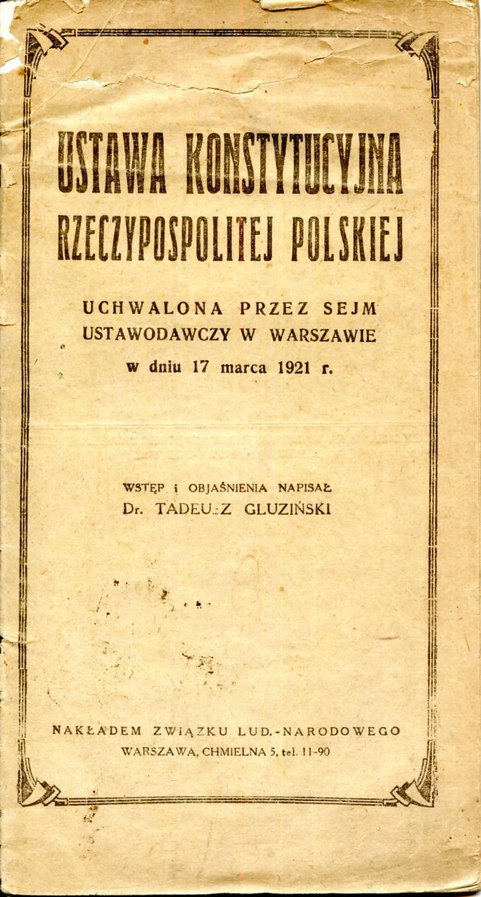On 17 March 1921, the Polish Sejm adopted a constitution which introduced an egalitarian system of a democratic republic, abolishing all state privileges and introducing the principle of complete equality between people in economic, social, and political terms.
Work on the Constitution took place in the shadow of the process of reforming the independent Polish state. Poland, after regaining independence in November 1918, was still a post-partition conglomerate that was difficult to unify. The document was eventually adopted by acclamation and normalised social relations until April 1935, when a new constitution was adopted.
The March Constitution guaranteed the continuity and unity of the Polish state. It adopted a republican form of government based on the principle of the sovereignty of the nation understood as all the citizens of the state (Article 2 – “supreme power in the Republic of Poland belongs to the Nation”). It introduced the principle of the tri-partition of power, whose representatives were to be elected by a five-choice vote, according to the principles of: secrecy, directness, equality, universality and proportionality. The terms of office of the 444 deputies and 111 senators were to last five years.
It was described as a modern constitution, as it introduced the principle of a liberal state, where the interests of the citizen took precedence over the interests of the state, which meant that a wide range of civic rights and freedoms were included in the constitution (e.g. active and passive electoral rights, the right to hold public office, the right to protect life, liberty and property; the inviolability of private property and freedom of conscience and religion were also guaranteed).
The adoption of the Constitution was followed by a solemn parade, which was a patriotic demonstration ending with a mass at St John’s Cathedral in Warsaw.
During the first period in which the March Constitution was in force (until the so-called May Coup of 1926), the Second Republic appeared to be a liberal state with numerous social rights protecting the citizen, which made it stand out in comparison with Europe at the time.
On 16 March 2021, the Polish Parliament adopted by acclamation a resolution commemorating the 100th anniversary of the introduction of the March Constitution, stating that its assumptions constitute an important element of the political system of contemporary Poland.





